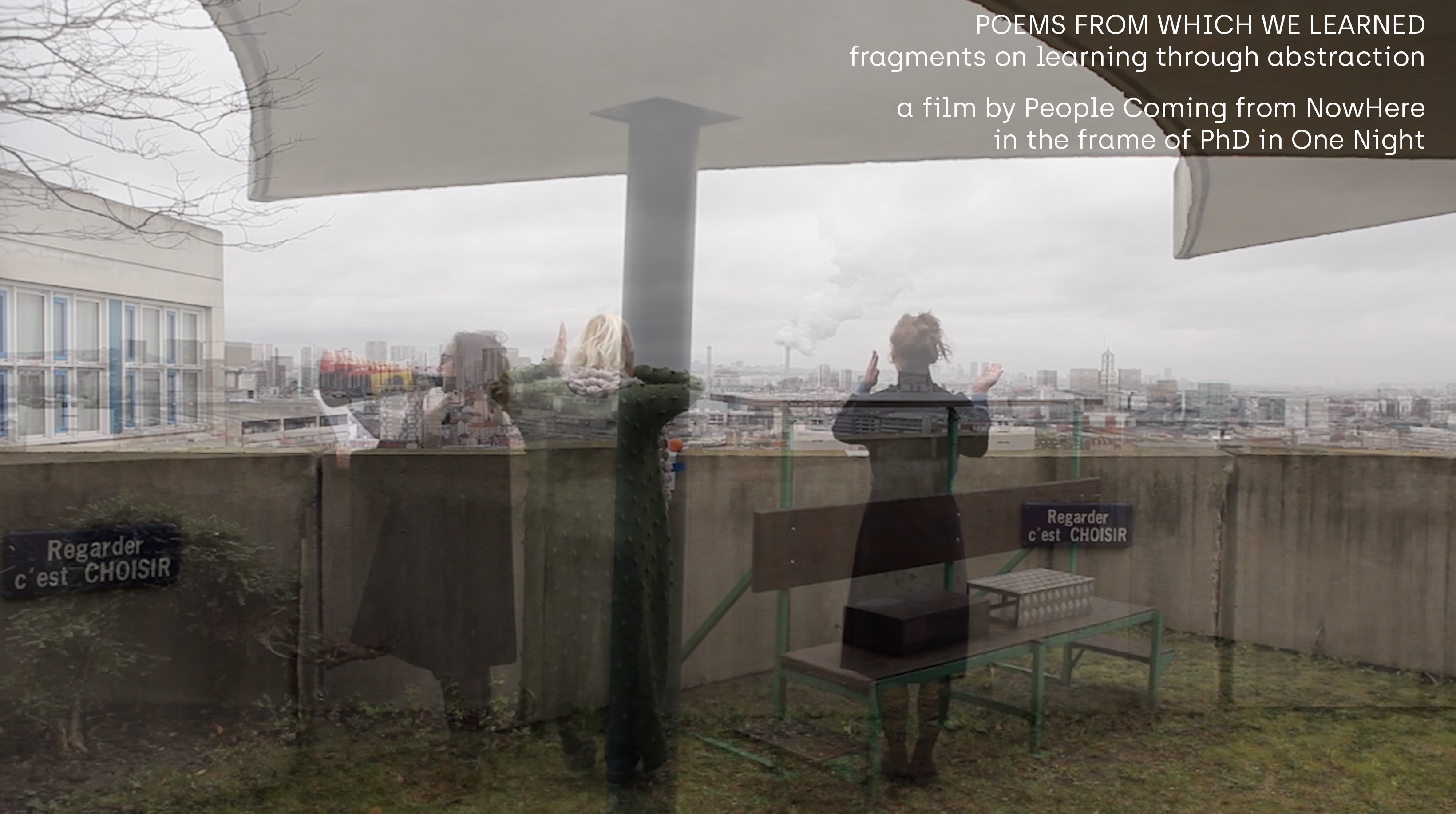-
:: mindception ::
[ texts ]John Hill
about "Poems from which we Learned"

Doing things with other people is hard, though of course so is doing things alone. Both might be impossible if they were not in the end inseparable. The hardest part might be to start, which means to get beyond the contradiction and finding people with whom we can work alone, with whom we can learn how to be separable and inseparable. Poems from which we learned is a document of this kind of process but it is also clearly more. It’s a score as well as a performance, played but also playable. The film gathers the results of PhD in one night, a frame for activity—talking, acting, teaching and learning—that began in 2008. This framing might at first appear a little off, not because a contribution to the total of human knowledge that a PhD requires can’t happen in an in instant, but because what we watch in the film is a much longer, slower, ten-year process. Cutting together those ten years of conversation, experimentation and improvisation into just an hour does not change that slowness, and it does not compress this time. What it does is string together the moments—and fragments of moments—presenting them as examples, each one complete, of learning from the poems that these moments produced, learning each other and from ourselves. This poetry of moments is not one of epiphanies, it is built from moments of response.
A point of light moves with in the dark together with the sound of a violin so that it becomes impossible to say which leads and which follows, only that both are present in a shared moment. Holding moments together for a decade, as this film does, is possible because in these moments different times are co-present—a fact this film does not construct but reveals as an abstraction, one to be struggled with precisely because it neither precedes nor follows the things that happened and that we watch. When we make a soundtrack to a silent film, when we draw the audience watching, when we dance, of course, on a stage or in the street, when our camera finds another’s body, the response is not our own but belongs to—and is produced by—that moment, together with other moments, alone with other people.
John Hill is an artist, organiser and educator based in Prague. He was a founding member of LuckyPDF and ran the education programme at Flat Time House, London. He is currently a graduate researcher at Liverpool John Moores University.
